Why Visit Bulgaria: 15 Reasons Bulgaria is Worth Visiting
Wondering why visit Bulgaria?
Bulgaria is worth visiting for its staggering nature, fascinating history, delectable food, and peculiar traditions. It’s worth going to Bulgaria to see Rila Monastery, hike in the Bulgarian mountains, relax on the pristine Black Sea beaches, and rejuvenate in the best thermal spas.
On top of that, it has never been easier to visit Bulgaria than it is right now.
If you’re searching for an authentic experience at an affordable price, now is the best time to go to Bulgaria.
As an avid traveler and proud Bulgarian, let me show you the 15 best reasons why visit Bulgaria.
Ready to explore?
Let’s dive right in!
Disclaimer: This post contains affiliate links. If you purchase something through one of them, I may receive a small commission at no extra cost to you. Thank you for helping me create free content on this website!
15 Top Reasons Why You Should Visit Bulgaria
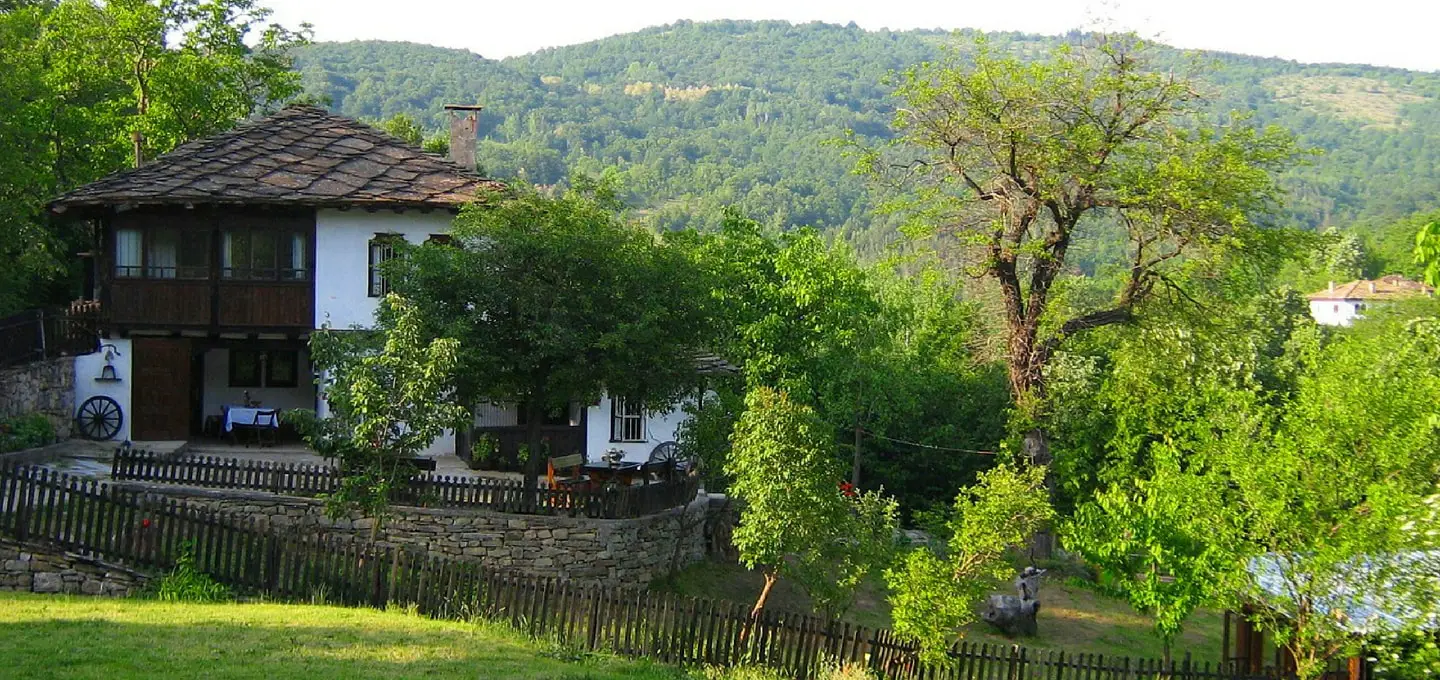
If you’re wondering if Bulgaria is good for tourists, the answer is absolutely YES. It’s safe, beautiful, and easy to explore.
The accessibility of the Eastern European country with over 1,300 years of existence, the most affordable prices in Europe, the abundance of tourist attractions, as well as the vibrant cultural and religious traditions, make Bulgaria an all-year-perfect tourist destination.
After exploring 45+ countries worldwide, I can honestly say that my home country Bulgaria should definitely be on your travel radar.
Let’s discover the reasons that make Bulgaria worth visiting below:
1. Bulgaria Is Worth Visiting for the Diversity of Historical Attractions
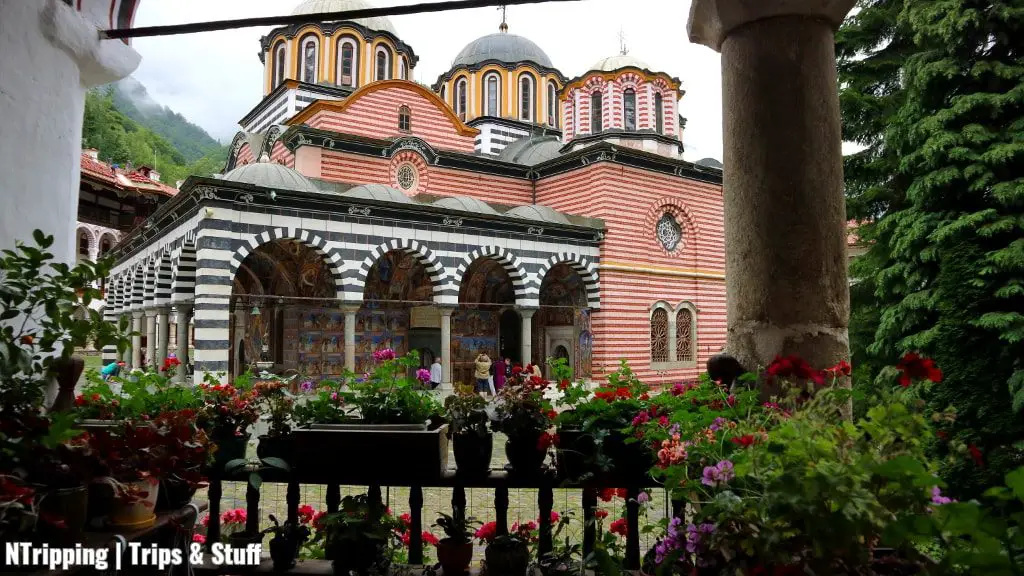
For a country of its size, Bulgaria holds an impressive variety of historical and archaeological attractions.
Although Bulgaria’s area makes her look like a dwarf in comparison to most countries worldwide, it boasts over 1,300 years of history.
This amazing fact means that you’ll find a ton of historical sites to explore. Many of them are on the UNESCO World Heritage List. Each of them alone is a great reason for visiting Bulgaria.
Here are the ones I recommend you see first:
- Rila Monastery. The largest East Orthodox monastery in the Balkans is tucked in the skirts of Rila Mountain. Gorgeous nature surrounds this historical site of utmost significance for our country’s education and spirituality.
- Boyana Church. The frescoes in the small 11th-century church make the works of the Italian Renaissance painters look like children’s drawings. You’ll find this world treasure at the foot of Vitosha Mountain in Sofia.
- The Plovdiv Roman Theater. The oldest continuously inhabited city in Europe enchants with its ancient theatre. The spectacular arena is still in use today and hosts up to 7,000 visitors.
- The Thracian Tomb of Kazanlak. This well-preserved burial site with astonishing frescoes reveals the incredible skills of the Thracian builders and architects. No wonder it’s on the UNESCO World Heritage List.
- Alexander Nevski Cathedral. The biggest cathedral in Bulgaria is also the most impressive one. Golden domes adorn its roof. Marble pillars support the structure. Rising in the center of Sofia, you can’t miss visiting this temple.
2. Visit Bulgaria for the Multitude of Natural Phenomena
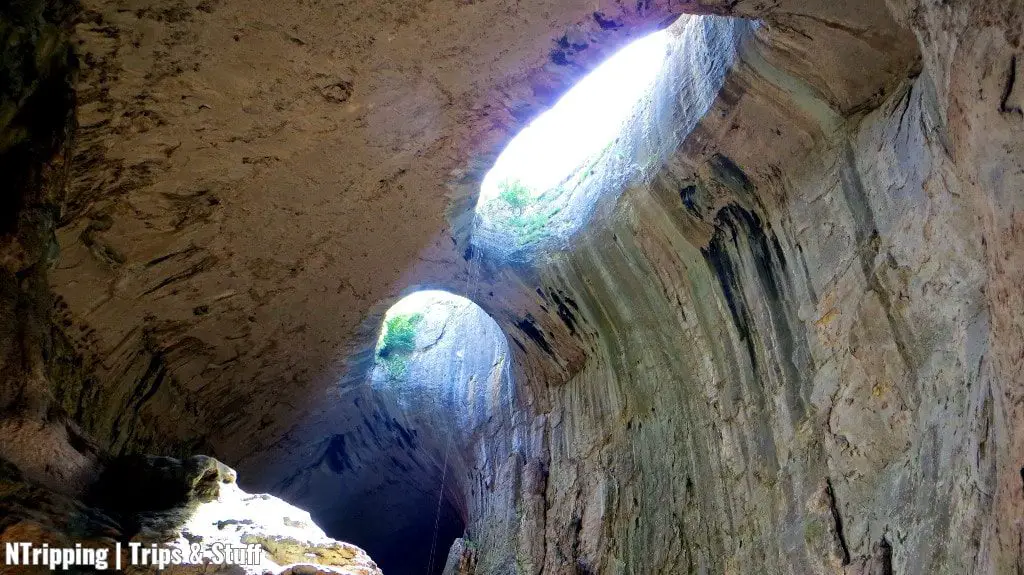
If you’re a nature lover, Bulgaria will seduce you with its mind-boggling natural attractions.
Karst caves, limestone rock formations, and alpine lakes await your exploration.
These are the top natural attractions that make Bulgaria worth visiting:
- Belogradchik Rocks. This group of peculiarly shaped sandstone cliffs possess unexpected hues of red. The unusual shapes have inspired countless legends.
- Prohodna Cave. More famous as The Eyes Of God due to the shape of the openings in its ceiling, this karst cave will redefine your belief in nature’s powers.
- Rila Lakes. The most famous group of lakes in the highest mountain in the Balkans is the Seven Rila Lakes. The pristine clear waters reflect the majestic surrounding mountains, inviting you for a hike.
- Melnik Pyramids. Time, wind, and rain have sculptured these sandstone rocks into intriguing shapes. You can visit them on a day trip from Sofia.
- The Marvelous Bridges. The mind-bending rock arches in the Rhodope Mountains are one of the most captivating phenomena in Bulgaria. Two spectacular natural bridges span over the valley of the Erkyupriya River.
3. Don’t Miss Sofia, the Vibrant Bulgarian Capital
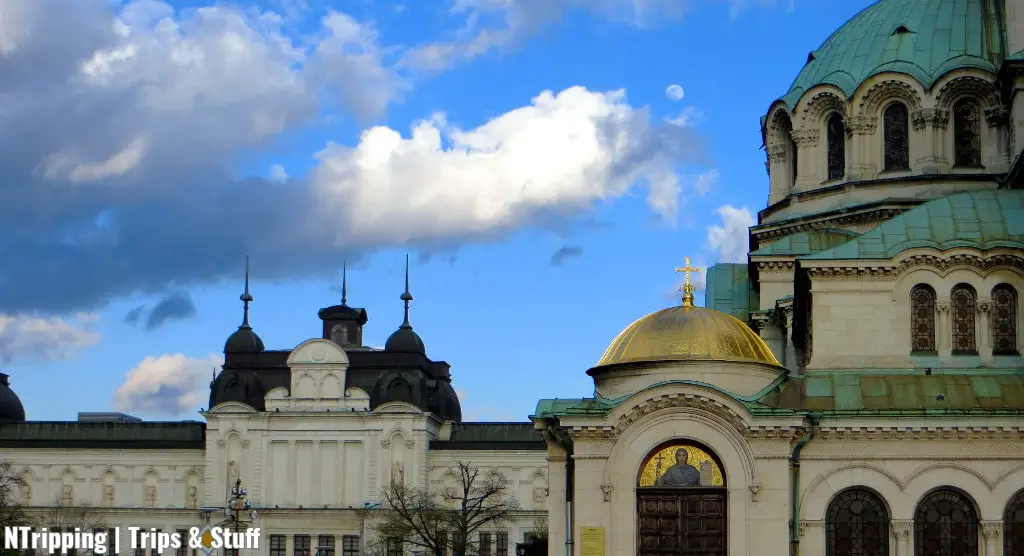
Bulgaria’s capital, Sofia, is walkable and fun to explore.
Very few capital cities in the world are so compact that you can visit the whole city center and tourist highlights on foot.
Still, the number and variety of things to do in Sofia, Bulgaria is quite impressive.
Temples of most major religions are located just a few feet away from each other.
Visit huge East Orthodox and Catholic cathedrals, Bulgaria’s biggest mosque, and the second-largest synagogue in Europe all in a single afternoon.
Churches and basilicas, dating back to the 4th century, archaeological sites from the Roman Empire, magnificent monuments and lush parks, museums and galleries with enormous collections offer something for every taste possible.
Not to mention concert halls and the world-renowned Sofia Opera with an astounding interior and incredible singers.
For the night owls and the party crowd, Sofia offers a myriad of magnificent bar-hopping and pub-crawling opportunities.
Exploring the capital city is definitely one of the best things that make Bulgaria worth visiting. To best prepare for your trip, check out these amazing facts about Sofia.
4. Go to Plovdiv, the Oldest Constantly Inhabited City in Europe
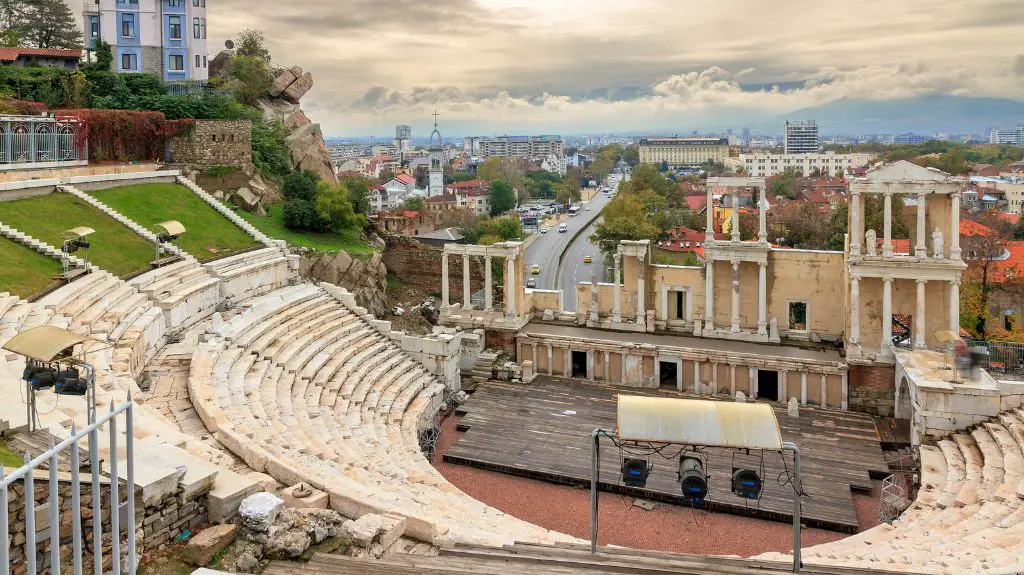
Plovdiv is Bulgaria’s second-largest city.
Many historical sources claim that it’s the oldest city in Europe. That’s one of the craziest facts about Plovdiv, right?
For travelers, this means that you can find a ton of archaeological sites during your visit.
The most impressive one is located in the Old Town of Plovdiv. The Roman theatre sits on one of the magnificent seven hills of the city.
The ancient arena dates back to the 1st century AD. It’s one of the best-preserved Roman theatres in the world. Nowadays, it still hosts concerts and performances. Its capacity is up to 7,000 seats.
Other Roman sites in Plovdiv you can visit are the Stadium, the Odeon, and the Small Basilica of Philippopolis.
Plovdiv also enchants with its vibrant Old Town. Its colorful houses, fascinating museums, and stunning vistas will leave you in awe.
The best places to visit in the Old Town include Balabanov’s House, the Regional Ethnographic Museum, and the Zlatyu Boyadzhiev Permanent Exhibition.
✔️ Tip: You can easily visit Plovdiv on a day trip from Sofia.
5. Other Fantastic Bulgarian Cities Worth Exploring
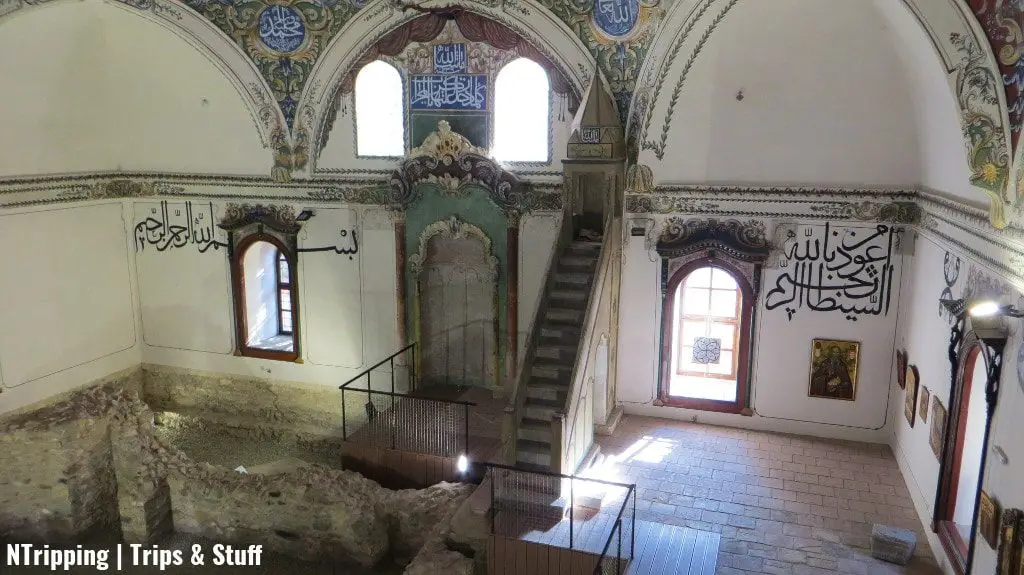
After visiting the capital Sofia and the second-largest city Plovdiv, you should venture to explore other Bulgarian cities as well.
Here are the ones that make Bulgaria worth visiting:
- Stara Zagora. Explore neolithic dwellings, dating back to the 6th millennium BC. Wander the streets of the Roman city of Augusta Trayana. Learn the greatest story of religious tolerance at the Museum of Religions. All in the same city, Stara Zagora.
- Veliko Tarnovo. Also known as The City of the Tsars, Veliko Tarnovo was the capital of the Second Bulgarian Empire. Its highlights include the Tsarevets Fortress, the Monument of the Asen Dynasty, and the Old Town.
- Varna. The largest Bulgarian city on the Black Sea coast is home to the oldest gold treasure in the world. After the Thracians, Romans, and Celts populated the area, leaving priceless historical artifacts.
6. Visit the Bulgarian Countryside as Well
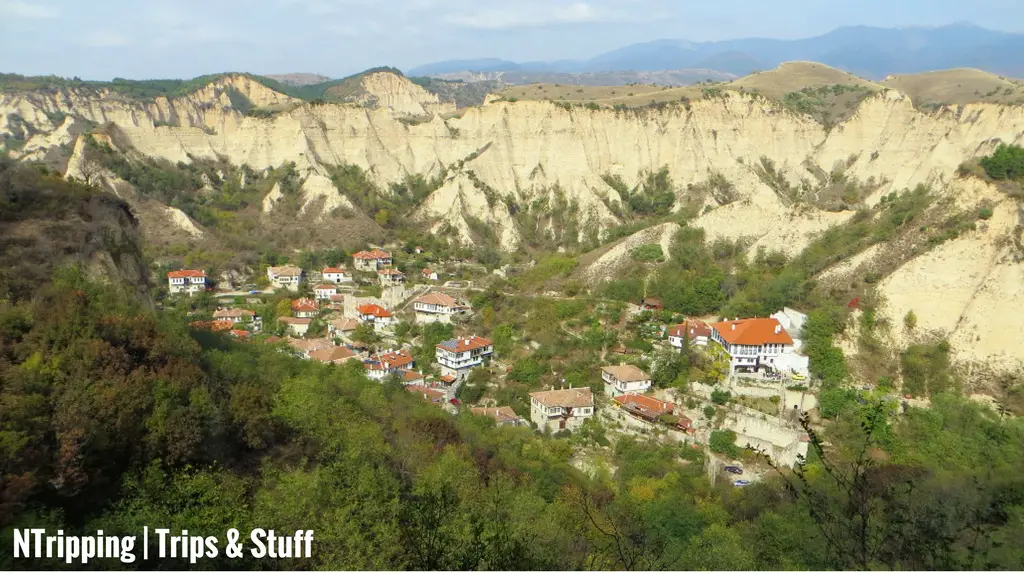
Next to big cities, our countryside also attracts with its treasures. Rich history, stunning nature, and hot springs await you in Bulgaria.
You should explore these fascinating towns that make Bulgaria worth visiting:
- Velingrad. Known as The SPA Capital of the Balkans, Velingrad is the best place to rejuvenate. The city’s altitude, the clear mountain air, and the healing power of its mineral waters make Velingrad ideal for strengthening your body.
- Melnik. Bulgaria’s smallest and warmest town is famous for the Melnik Pyramids and the Melnik Wine. It’s also an architectural park, boasting a large number of Bulgarian National Revival houses.
- Koprivshtitsa. The mountainous town is home to the most vibrant, significant, and numerous houses of the Bulgarian Revival architectural style. Stroll its cobble-stoned streets, which witnessed some of the most important battles in Bulgarian history.
- Panagyurishte. The town in the magnificent Stara Planina Mountain played an important part during the Liberation of Bulgaria from the Ottoman Empire. It’s also home to one of the most impressive golden treasures ever found.
- Sapareva Banya. If you enjoy the healing powers of hot thermal baths, you should head over to Sapareva Banya. The small town in Rila Mountain is home to the hottest geyzer in Europe. The hot mineral waters will wash your stress away.
7. Discover the Jaw-Dropping Bulgarian Mountains
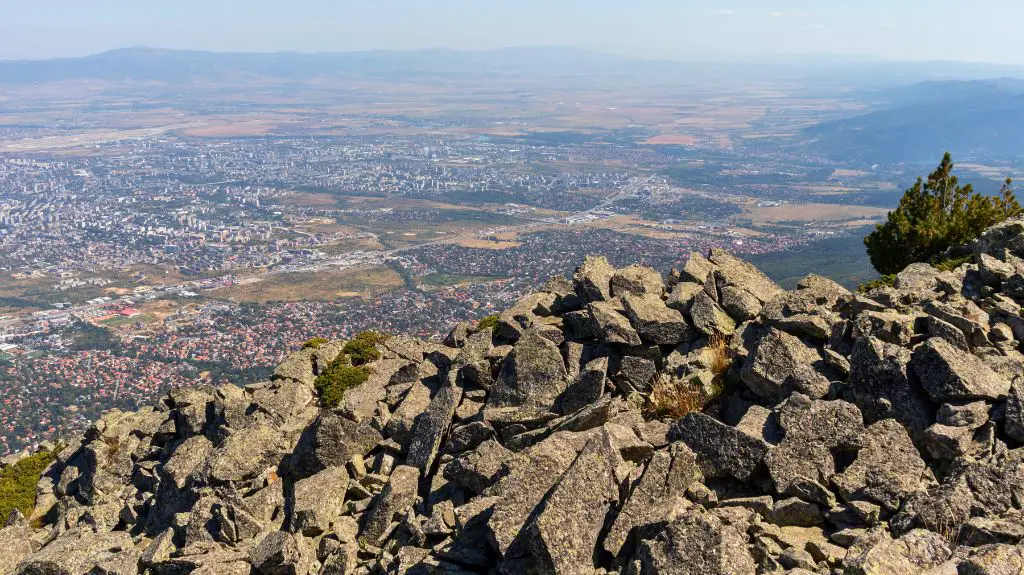
Whether you like hiking, skiing, or simply admiring beautiful scenery, the drop-dead gorgeous Bulgarian mountains will make you want to pack your bag.
Find which ones make Bulgaria worth visiting:
- Rila Mountain. Pristine alpine lakes, the highest peak on the Balkan Peninsula, and the most important monastery in Bulgaria await your exploration. You can hike, ski, taste delectable dishes, and discover fascinating history in Rila Mountain.
- Pirin Mountain. Although not as high as Rila Mountain, Pirin is actually harder to hike and its ski slopes are more difficult to conquer. The legends that surround the area and the peculiar traditions of its people will make you want to revisit it over and over again.
- The Rhodope Mountains. The most magical mountain in Bulgaria doesn’t impress with its height but with its underground caves, wonderful bridges, mystical forests, traditional villages, and the hospitality of its people.
- Stara Planina Mountain. The longest mountain range of Bulgaria is also the one that gave the Balkans its name. Although it’s no longer called Balkan, Stara Planina Mountain still remembers countless legends of the heroes and battles that led to Bulgaria’s liberation from the Ottoman Empire.
- Vitosha Mountain. The proximity to the capital Sofia makes Vitosha the easiest Bulgarian mountain to visit. Fantastic vistas, hiking trails, ski slopes, and picnic areas attract locals and visitors alike. At the foot of the mountain, you’ll also find two important historical sites, Dragalevski Monastery and Boyana Church.
8. Go to the Best Bulgarian Black Sea Beaches
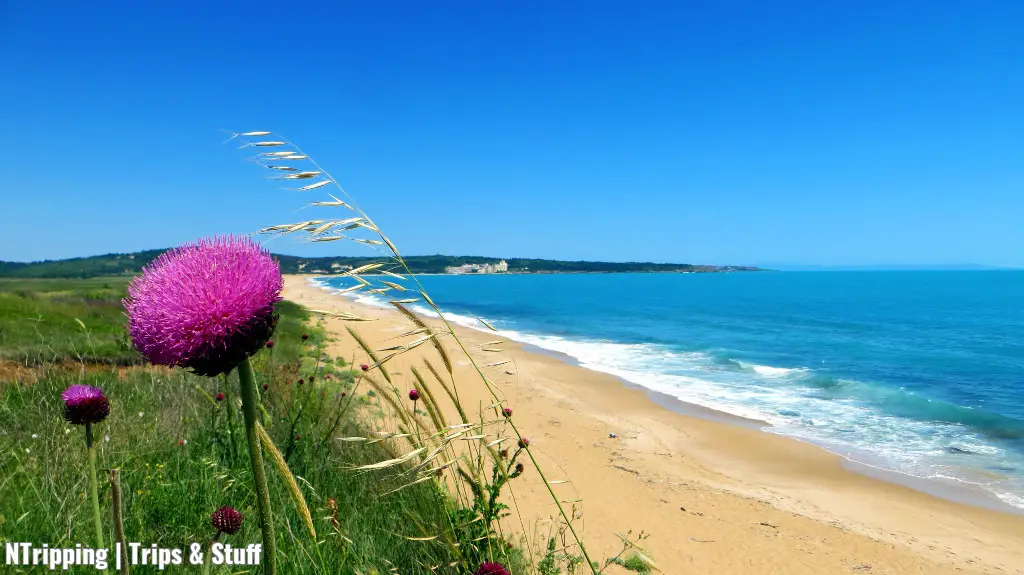
Pristine fine-sand beaches and rugged cliffs dot the Bulgarian Black Sea coast.
You can lay on a sunbed all day long, swim in the refreshing waters, jump from a high cliff, or rent a kayak.
These fantastic Black Sea beaches make Bulgaria worth visiting:
- Silistar Beach. Located inside a nature reserve, this beach with fine gold sand is perfect for swimming, walking, or climbing the cliffs at its ends. But please don’t venture too far into the nearby forest as it is a protected area.
- Veleka Beach. Veleka River flows into the Black Sea at the beach with the same name. The waves and the wind create perfect conditions for surfing. However, the beach is not suitable for swimming. Still, it’s perfect for a nice beach walk and a short hike.
- Dyuni Beach. This is one of the best spots on the Bulgarian Black Sea coast to simply stop your car at the side of the road and enjoy a couple of hours of sunbathing and swimming.
- Irakli Beach. It’s one of the most difficult-to-reach beaches in Bulgaria. However, it’s also considered one of the most beautiful stretches of sand. On its southern end, you’ll see Cape Emine, where Stara Planina Mountain kisses the Black Sea.
- Bolata Beach. The calm and shallow water of Bolata Beach makes it perfect for families with children. It’s also a great starting point for a boat trip or a sea kayaking adventure. Hike the surrounding cliffs for a magnificent view of the horseshoe-shaped beach.
9. Bulgaria Is Full of Ancient Thracian Tombs
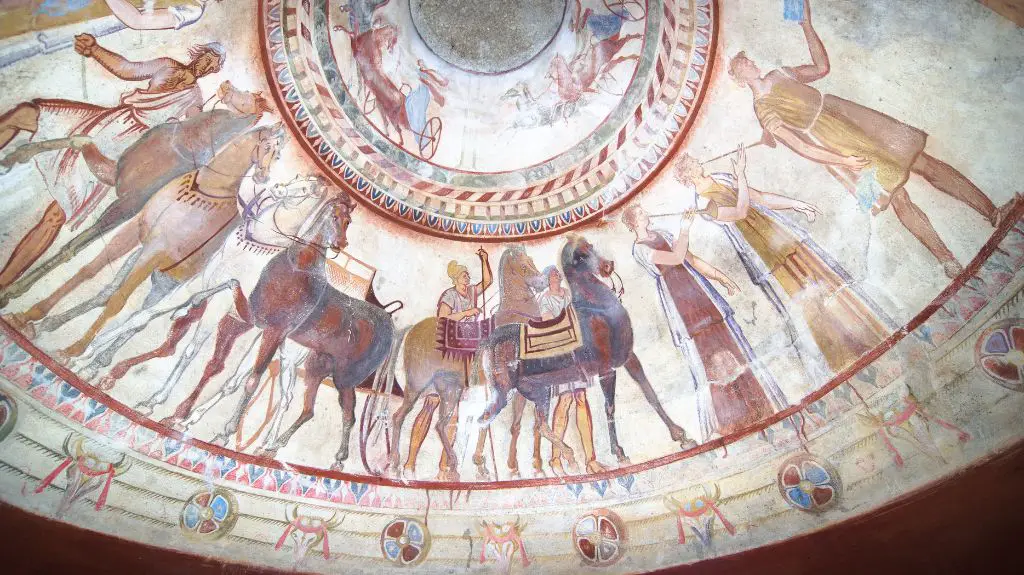
The ancient Thracian civilization lived in the Bulgarian lands 25 centuries ago.
Their sophisticated building techniques left an enormous archaeological treasure.
Thracian burial sites are scattered throughout the whole country. You can visit the most significant ones in the Valley of the Kings near Kazanlak.
The mind-boggling tombs of the Thracian rulers dot the area. Dating back to the 4th century BC, the Thracian Tomb of Kazanlak will spell-bind you with its vibrant frescoes and regular geometrical shapes.
Other important Thracian burial sites that make Bulgaria worth visiting are located near Starosel, Sveshtari, Mezek, and Aleksandrovo.
Moreover, the Thracian city Perperikon is dubbed the Bulgarian Machu Picchu. So, if you like wandering ancient cities, I bet you’re no longer wondering if Bulgaria is worth visiting.
10. Travel to the Rose Valley of Bulgaria
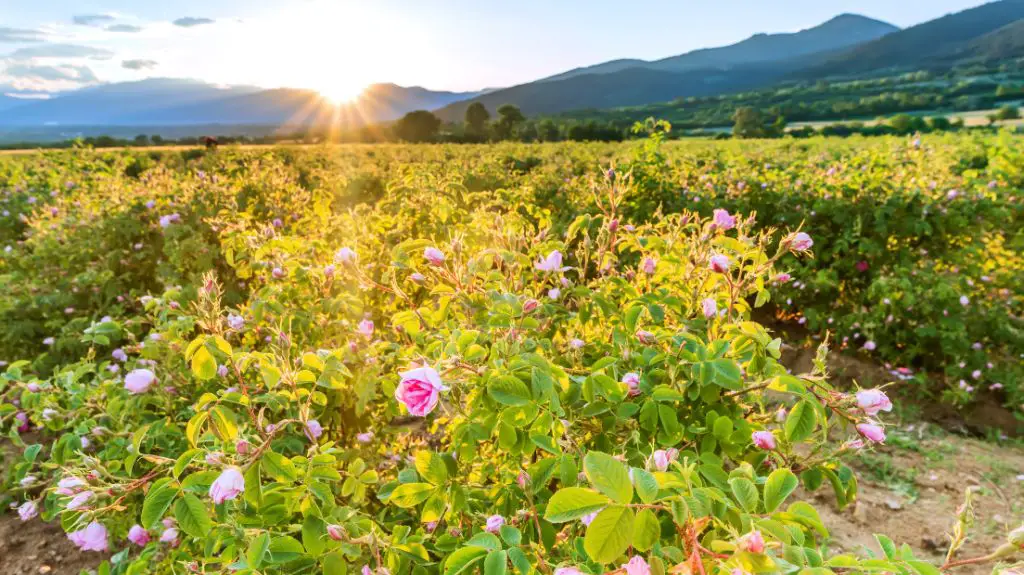
One of the most astonishing facts about Bulgaria is that our country produces around 60% of the world’s rose oil.
The heart of the fragrant industry is the fairytale-like Rose Valley.
The area around the town of Kazanlak has a long-lasting tradition of growing and harvesting the roses used for the production of the valuable oil.
The Rose Festival happens each year during harvest. Rose-picking rituals take place in several villages near Kazanlak.
The festival culminates with a parade and the crowning of the Rose Queen.
You can learn about the process of harvesting the delicate roses and the hard work involved in the manufacturing of the oil, as well as sample traditional Bulgarian products, during this guided tour.
11. Discover the Healing Powers of Bulgaria’s Mineral Waters
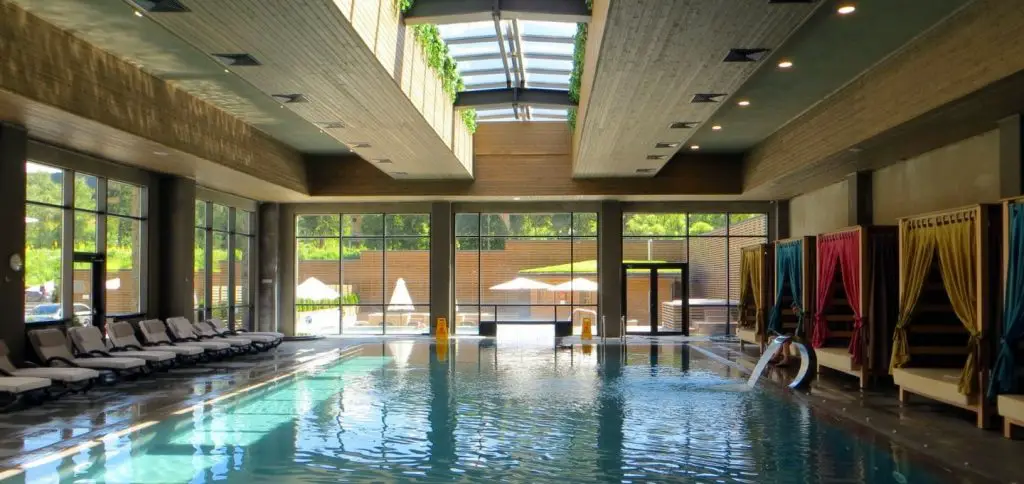
With over 600 mineral water springs, Bulgaria is the 2nd richest in mineral waters country in Europe and 3rd in the world.
The healing powers of the Bulgarian mineral waters have been known for ages. Remains of aqueducts show that the Ancient Thracians and the Romans used thermal water to rejuvenate and heal their bodies.
Nowadays, several Bulgarian towns boom with SPA hotels, featuring diverse mineral pools, thermal baths, and wellness facilities.
You’ll find the best wellness treatments and mineral pools in Velingrad, Sapareva Banya, Hisarya, and Sandanski.
You can enjoy the benefits of the mineral water of Bulgaria in three ways. You can drink it, inhale it, and soak your body in therapeutic pools. In this way, the water can treat different diseases and revitalize your body from inside and out.
If you’re looking for a healthy way to spend your vacation, you can add the abundance of mineral waters to your reasons that make Bulgaria worth visiting.
12. Bulgarian Food Is Delectable and Rich in Flavours

Bulgarian food isn’t as famous as other cuisines from the region.
However, our country’s rich history is the reason the dishes and the traditions are an abundant reflection of the different influences of peoples who passed through Bulgarian lands.
The cuisine is diverse, mixing fresh vegetables with tender meats and fragrant herbs. White-brine cheese and Bulgarian yogurt often complement your meals.
Vegetarians can order at least half of the menu. Meat lovers have a hard choice of deciding between juicy meats. The spices used complement the rest of the ingredients in such a way that even the most fastidious eaters will climax.
And the beverages? There’s plenty to choose from.
From incredibly tasty but affordable local wines to the national drink rakia, and from homemade soft drinks to the weird-tasting boza, you’ll have countless choices to accompany your Bulgarian food.
13. Bulgaria Fascinates with Its Culture and Traditions
Our country’s centuries-long history means our culture and traditions are fun to explore, too.
Below, you’ll find the most interesting customs that make Bulgaria worth visiting:
- Bulgarian folklore music. Referred to as “the eighth miracle”, the traditional Bulgarian music uses odd meters. This means that the beats can’t be divided. The accompanying dances, called horo, leave visitors in awe and disbelief.
- Martenitsi. Bulgarians welcome spring with Baba Marta. Every year on March 1st, we exchange martenitsi. The red and white woolen bracelets, necklaces, and little figures are a symbol of good health and prosperity.
- Yordanovden. A Bulgarian tradition involves jumping into freezing waters. On January 6th, a priest throws a cross into a river or a lake. Single men jump in to retrieve the cross. Whoever pulls it out of the water is believed to be rewarded with health and happiness.
- Nestinarstvo. This Bulgarian tradition involves walking barefoot on embers. In some parts of Bulgaria, locals still practice this ritual. Men and women enter a state of trance, then walk and dance barefoot on burning ashes.
- Kukeri. In the winter months in Bulgaria, groups of men, women, and children dress in peculiar costumes. The so-called kukeri are decorated with heavy bells, huge hats, and scary masks. They dance and make deafening noises. Their goal is to scare evil spirits away and bring a good harvest.
14. It Is Safe to Travel to Bulgaria
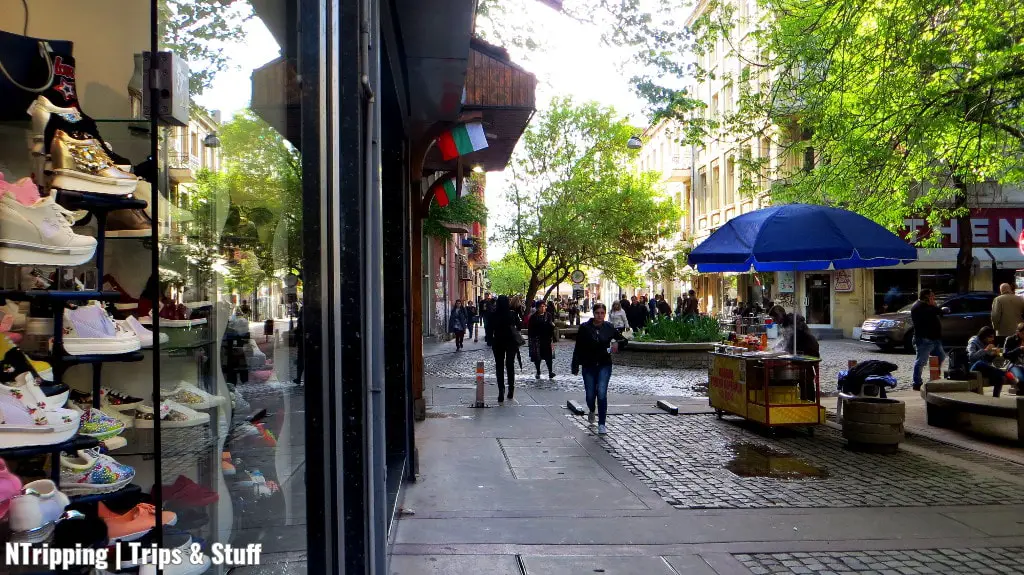
Here’s some good news for you:
Bulgaria is safe for travelers.
Unlike other regions in the area, Bulgaria has kept away from war conflicts in the past decades.
The crime rates are relatively low. The only real danger you need to be aware of is car accidents.
Common scams usually happen only in the most touristic places. Travelers may fall for fake exchange rates, inflated bills, and petty thefts.
Use common sense, don’t walk alone at night, and avoid confrontation. Especially after having a few drinks, better go to bed than prove you’re tougher than your new Bulgarian pal.
15. Bulgaria Is Affordable and Easily Reachable
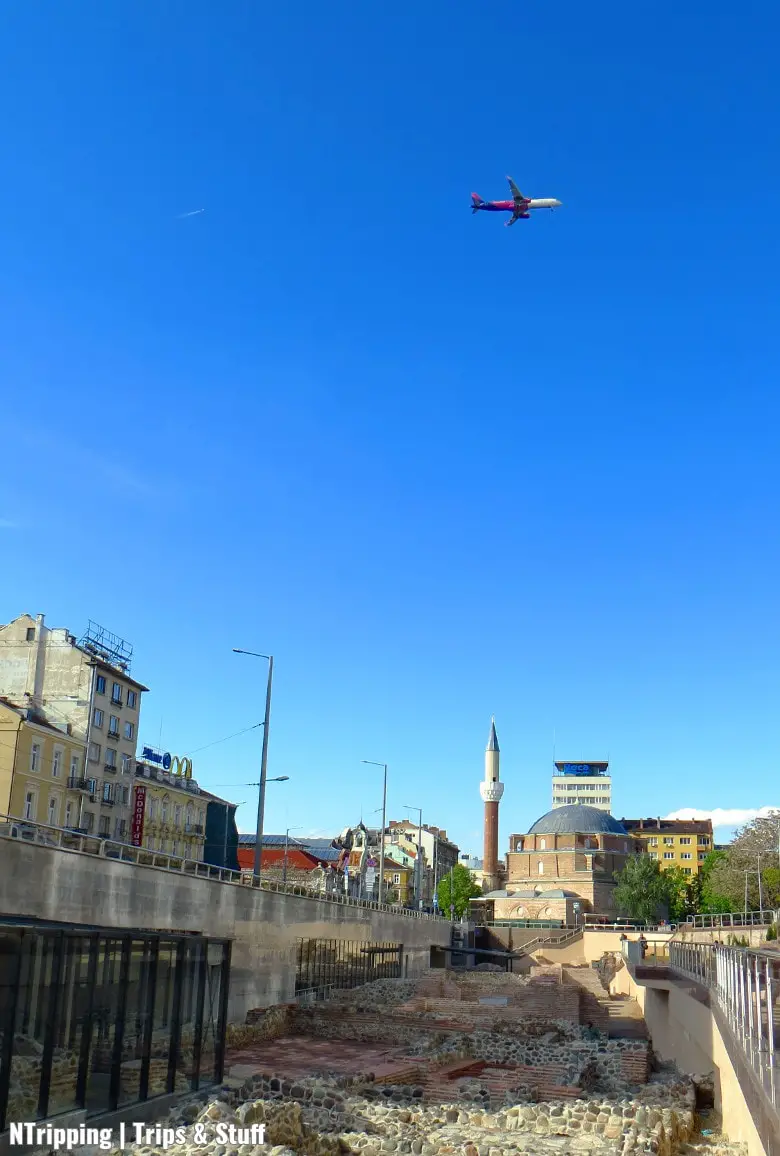
Bulgaria is one of the cheapest and easiest countries to visit in Europe.
However, since 2007, when Bulgaria became a member of the European Union, prices are steadily increasing.
If you’re looking for a bargain, now is the perfect moment to visit Bulgaria. It’s still the most affordable country to travel to in Europe. But not for long.
So, if you find a cheap flight that matches your travel dates, don’t miss to travel to Bulgaria and make great memories for pennies.
It’s never been easier to reach our country. Sadly, you never know what game the airlines will play next season. Don’t gamble with their moods and simply hop on the next flight to Bulgaria.
Most national carriers and low-budget airlines offer direct flights to Sofia and some other Bulgarian cities from numerous destinations in the world.
The problem is that your perfect connecting flight might get canceled next season.
So, if you’ve found an affordable ticket, go ahead and book it now!
You don’t want to fly? No problem.
If you’re already visiting Eastern Europe, catch one of the regular bus lines to Bulgaria. The trips are in comfortable vehicles and at low prices.
It is, in fact, easier and cheaper to travel to Bulgaria for a weekend getaway or a short vacation, than to go partying on a Saturday night in your neighboring town!
Travel Tips for Your Visit to Bulgaria
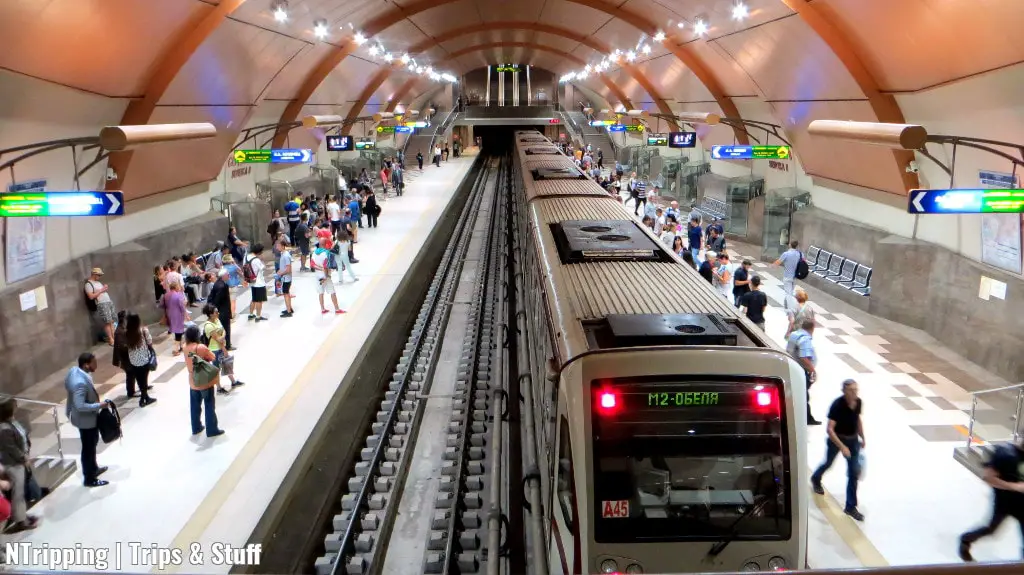
Now that I’ve convinced you that Bulgaria is worth visiting, I should help you travel to the country, right?
Here are my best travel tips for traveling to Bulgaria:
- Visa requirements. EU citizens don’t need a passport to enter Bulgaria, just a national ID. Holders of Schengen Visas can visit Bulgaria without additional bureaucracy involved. Check the website of the Ministry of Foreign Affairs for all entry requirements.
- Bulgaria is still a hidden gem. Even the most popular tourist attractions are still not as crowded as other tourist sites you’ve seen. So, visit now before mass tourism ruins your authentic experience.
- Bulgaria’s compact size makes it perfect for road-tripping. It takes a few hours to get from one end of the country to the opposite by car. And the most adventurous travelers can experience some pretty unique modes of transportation, such as the last narrow-gauge railway.
- Buy your transportation tickets in advance. If you want to use public transportation in Bulgaria, remember to buy a ticket before you hop on the bus or subway. Especially at Sofia Airport, drivers refuse to sell tickets if you don’t have exact change. Chances are you’ll be fined shortly after the ride starts.
- The subway connects Sofia Airport with the Central Railway Station and the Central Bus Station. From there, you can hop on a train or bus to various domestic and international destinations. Note that single subway tickets are only valid at the time and from the station of purchase.
- Bulgaria is largely a cash economy. Outside of the capital Sofia, only major chains accept card payments. Don’t exchange money outside banks as you can be scammed. The Bulgarian currency Lev is tied to the Euro. The official exchange rate is €1.00 = BGN1.95 (approximately $1.00 = BGN1.80).
- Bulgaria uses the Cyrillic alphabet. Two Bulgarian scholars, the Saints Cyril and Methodius, invented the script. Since Bulgaria joined the European Union in 2007, the Cyrillic alphabet became the EU’s third official alphabet. Worldwide, an estimated 250 million people in 12 countries use some version of the Cyrillic.
Now You Know The Top Reasons Why Visit Bulgaria
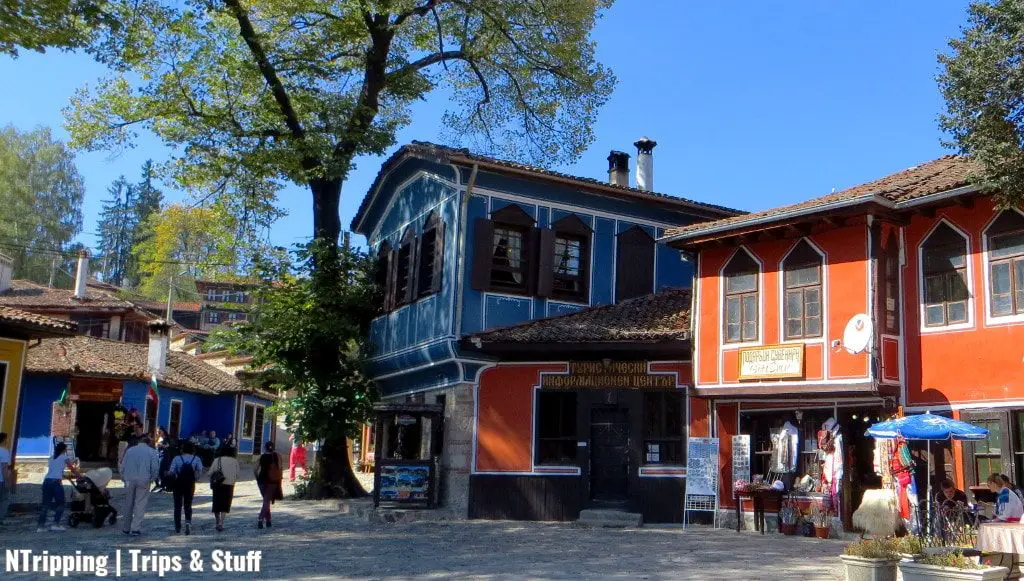
The reasons that make Bulgaria worth visiting are countless.
This list only aims to give you an idea of why you should go to this hidden European gem as soon as possible.
Remember that easy access, affordable prices, and an abundance of landmarks mean great news for tourists. It also means places lose their authenticity faster than ever.
So, if you value authentic experiences, affordable travel destinations, and a myriad of tourist locations, you should visit Bulgaria right now.
I hope you’re no longer asking yourself “Why visit Bulgaria“, but booking your ticket already!
Now, it’s your turn:
Have you visited Bulgaria? What impressed you the most?
Let me know in the comments below.
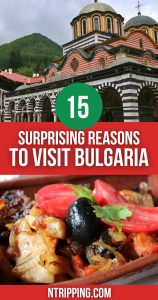
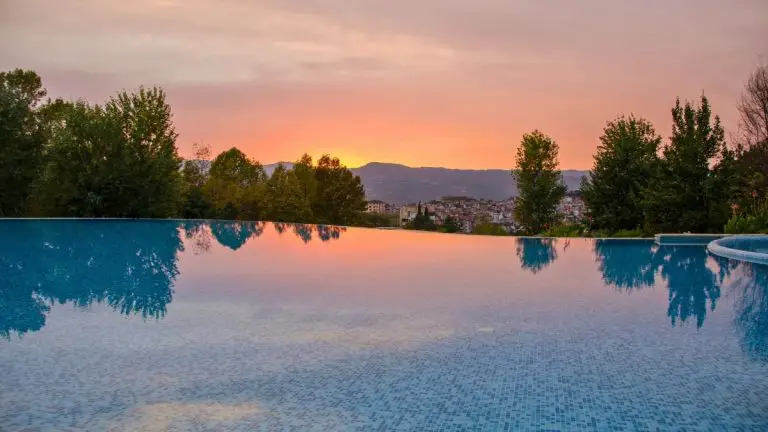
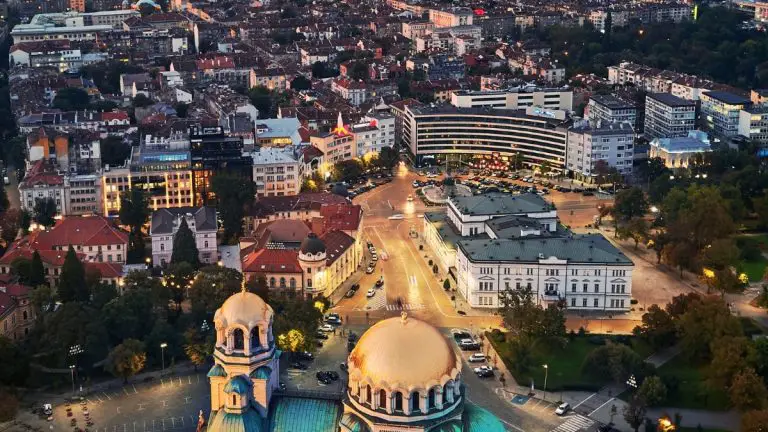

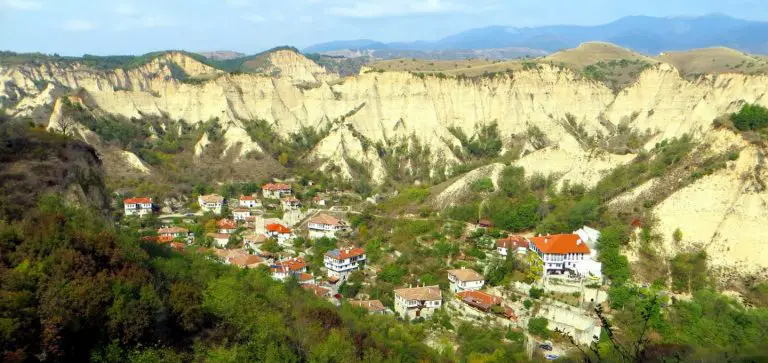
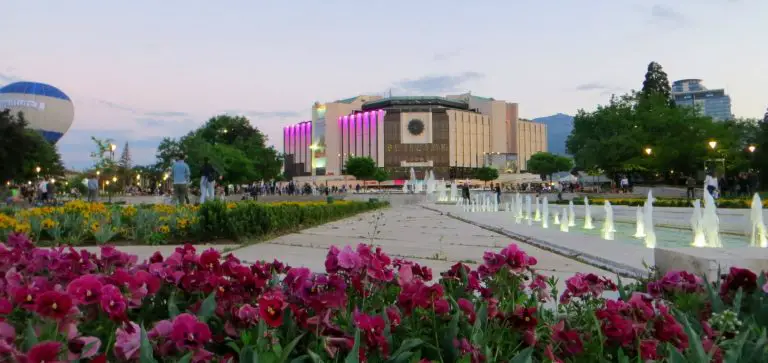
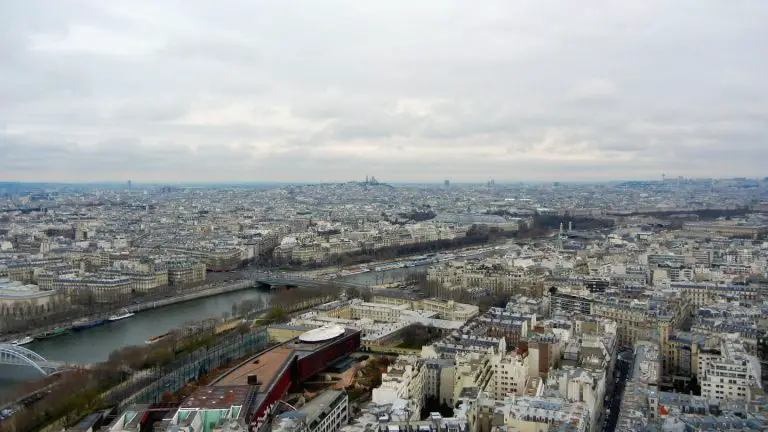
Great post. The food sounds more interesting than I expected. But what about vegetarian food? I just wondered if it is readily available. Thanks, Amanda
Hey Amanda,
there are a lot of vegetarian options.
Since Bulgarians are primarily East Ortodox Christians, fasting is a part of the traditions. In fact, on Christmas Eve we traditionally serve vegeterian food only. Check the photo with the food, the bottom middle pic is from one of the Christmas Eve celebrations at my parents’ place :)
Typical dishes are for example peppers filled with rice and rasins and herbs; bean soups or baked beans; vine leaves rolls; lots of potatos, cabage, eggplant or zuccini dishes, you name it :)
Hope this answers your question.
Cheers,
N.
Brilliant piece of content. Thanks a ton for sharing.
Great article, N.! There are so many interesting things we can show to the world!
Glad you liked it, Milica :)
I had to restrain myself to make the list that short ;)
Cheers, N.
браво на българия! I have lived for a few years in Bulgaria and ever since I have been spreading my joy all around world.
Beautiful people, outstanding local food and stunning places. All the best, thanks for the nice article.
Hi Kristina, thank you for your kind words about Bulgaria and for spreading the word!
Best of luck to you wherever you’re located now :)
Cheers, N.
Love your post, thank you. Very enlightening.
For first timer with 3.5 days to spend in Spring, would you recommend staying in Sofia and discovering the things around it, or Plovdiv??? And which must sees do you reccomend? I would imagine nature is beautiful in April.
Best,
N
Hey N., thanks for your kind words!
For a first visit to Bulgaria and only 3.5 days, I definitely recommend staying in Sofia. You’ll need about a week to visit both Sofia and Plovdiv.
You can visit the biggest landmarks which are very conveniently situated in the city centre in about two days and have a day for shopping, partying, chilling in the cafes or parks.
I highly recommend going inside Alexander Nevski cathedral, then visiting St. Sofia church and going down in the underground museum. Then checking the Russian Church, continuing to the Serdica excavation site, seeing the Mosque at one end of the excavation site, visiting the Sofia Museum of History in the former building of the city bath, going inside the Central Hali (covered market), then visiting Sofia Synagogue. Afterwards go back to the Serdica ruins and check St. George Rotonda and the Museum of Archeology. These are more or less the main historical landmarks :)
For shopping, I recommend the little boutiques in Pirotska street just opposite from the mosque. For coffee drinking and people watching – the pedestrian area of Vitosha Boulevard and the park of the National Theatre Ivan Vazov. For partying – Tsar Shishman Str.
For transportation, the best way is to take the subway or hire a taxi. Taxi rates are under 1 lv currently but you should check the sticker with the rates before you hop in as many have inflated prices.
Let me know if you have more questions, I’m currently working on a travel guide for Sofia but I doubt it I’ll be ready in time for your trip :)
Cheers, N.
Thank you so much for the quick and super informative response! I’m looking forward to checking out as much as I can!
Do you have any recommendations on where to stay? is there a charming area, central but not too industrial/concrete jungle/modern…? More of an old town, picturesque, charm and feel? I’ve read good things about places in on Tsar Osvoboditel Blvd overlooking Alexander Nevski Cathedral..
I’d really appreciate your thoughts on this :)
Best,
N
I would suggest staying in the city centre near the landmarks which you want to visit. This way you can walk around and see a lot in just a few days. Not sure about your budget, and I haven’t stayed myself in a hotel in Sofia I must admit, but you can check reviews before booking.
A couple of hotels I can think of with great locations are: Radisson Blu (that is by far the best possible location for everything you might want to do!); Arena di Serdica (also very central and with ruins from the city walls in the lobby, very beautiful sight); Crystal Palace Boutique (next to Sofia University, a nice artistic neighbourhood); Hostel Mostel (a few minutes away from the city centre, loved by low-budget travellers). Tsar Osvoboditel Blvd is a great location and there are a few hotels there, incl. above mentioned Radisson.
You can maybe make a rough plan of places you want to see and use Google Maps for finding a hotel in the area you’re most going to visit. There are also a lot of restaurant recommendations and you can rely on reviews as they seem to be genuine most of the time.
Hope this helps :)
You are truly wonderful, thank you for all your time and wonderful help :) :)
You’re welcome! No trouble at all :) I wish you have a great time in Bulgaria and come back for more!
Great article. You also gave many useful tips. I will add that the public transport ticket for one trip costs 1.60 leva or 80 cents. And as NTripping wrote, it’s really good to have exact money when you get in the bus.
As regards to climate, Bulgaria is extremely favorable for tourism in all seasons. Just keep in mind that the beginning of spring and autumn is quite rainy.
Thank you, Albena! Great tips, thanks for adding those :)
Cheers, N.
Well you’ve definitely convinced me to visit. I definitely want to get there whilst it’s still nice and cheap, and I love the fact you said it’s walkable. That is something that I find quite important when visiting a destination as I love being able to just walk around and explore. The food also looks very fresh and delicious.
Hey Mike, hope to see you in Bulgaria real soon!
Let me know if I can help you plan an unforgettable trip :)
Cheers,
N.
Now I am ready to go! Can you travel from place to place on public transport or do you recommend renting a car or getting a driver?
Hi Aimee,
I’m happy to have inspired you to travel to Bulgaria!
Of course, hiring a driver or arranging some sort of a private/tailor-made/small group tour is the easiest way to explore any destination, including Bulgaria. But it’s also the priciest.
Renting a car is also a good option but it’s hard to navigate on your own. Also, some drivers can be reckless making driving quite dangerous. But you’ll have the best flexibility.
There are also quite comfortable and reliable bus companies, which run between most towns. I believe Etap is one of the most reputable ones. Trains I can’t really recommend, except for the awesome train ride on the narrow gauge train in the Rhodope Mountains (check the video in this post: https://ntripping.com/velingrad/).
Since I’ve been asked a few times already about transportation in Bulgaria, I’m gathering information and will put up a guide soon. So check the blog for updates :)
Cheers,
N.